Showing 13–24 of 80 results
Jain, Bauddha and Ajivaka belong to Sramanic tradition. Ajivakas were firm believers of determinism (Niyativada). Determinism, in philosophy, implies that all events, including moral choices, are completely determined by previously existing causes. But when we talk about niyati as per Jain perspectives, there is a doctrine of karma. According to karma theory, an individual’s present condition is determined not by any absolute principle but by his own actions performed either in his past lives or in this life. By freely choosing the right course and following it faithfully, he could improve his destiny and ultimately win salvation.
But Jainism does not totally reject the doctrine of Niyativada. It talks of five co-factors (panca-samavaya), i.e. kala, svabhava, niyati, purvakrta and purusa. The first cause of the universe is false when each of the five factors is taken singly but true when they are considered jointly. Buddhist text Digha Nikaya talks of two types: (1) Theistic determinism (2) Karmic determinism. However, Buddha does not teach that we have complete freedom or that we are determined, but that our will is conditioned or limited to a greater or lesser extent.
This volume contains ten selected papers that present the philosophical discussion on determinism in Srmananic traditions, particularly in Jainism.

This book is an anthology of seventeen cerebral articles from well-known Buddhist scholars associated with major universities across the globe deliberating many a topic associated with Buddhist religion and its philosophies as part of our constant striving to understand the fundamental nature of what the Buddha wanted us to realize.
There have been serious attempts to understand the Buddha and his teachings since the inception of Buddhism some 2,600 years ago. All through the history of Buddhism, scholars were constantly striving to understand the fundamental nature of what the Buddha wanted us to realize. This book is an anthology of seventeen cerebral articles from well-known Buddhist scholars associated with major universities across the globe. In four parts – Meditation; Personality and Position; Dharmakirti and Persons; and Principles, History and Grammar – it highlights some pertinent topics associated with Buddhism and its legacy.
Part I discusses the diverse dimensions of meditation, dedicating itself to the kiriya (action) aspects of Buddhism. Part II is an attempt to delineate and study the major branches of Buddhism. Part III deliberates on the contributions of Dharmakirti and Rahula Sankrtyayana to the Buddhist philosophy along with the concept manusa-panatipata and how the revelation of reality of human experience by analysis helps a person to achieve wisdom in the light of Majjhima Nikaya Anathapindikovadasutta. Part IV has papers on different philosophical and applied concepts of Buddhism.
This volume thus should benefit one in understanding many an aspect of Buddhism vis-à-vis its enormous corpus of literature and teachings. It should highly benefit the students of Buddhism and for those who are keen to fathom deep into the myriad topics of Buddhist philosophy and teachings.
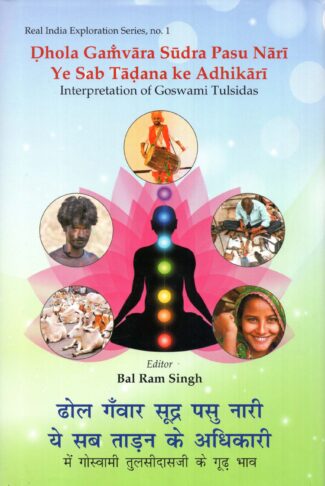
This book presents a proper meaning of the Ramcharitmanas chaupai, Dhola gamvara sudra pasu nari , ye sab tadana ke adhikari using the actual meaning of the word, tadana, in Avadhi language, and by delving into the deep philosophical references of the Pancabhutas, ether, air, fire, water, and earth of the Samkhya and Vaishesika darshanas, as intended by Goswami Tulsidas.
This book presents a proper meaning of the Ramcharitmanas chaupai, Dhola gamvara sudra pasu nari , ye sab tadana ke adhikari using the actual meaning of the word, tadana, in Avadhi language, and by delving into the deep philosophical references of the Pancabhutas, ether, air, fire, water, and earth of the Samkhya and Vaishesika darshanas, as intended by Goswami Tulsidas.
DRISHTIPAAT, is a glimpse into the life and times of the three great saints of Ishvar Ashram, Nishat, Srinagar Kashmir. This book makes their presence felt all around us. The pictorial journey, takes the reader, in the serene and benign presence of the great Shaiva master Shree Lakshman Joo, Devi Sharika Ji and Devi Prabha Ji. Their drishti (glance), through the pictures, and shlokas make readers drench with the Divine Grace and their blessings.
Philosophy in this set of two volumes is a cognitive activity par excellence. Cognition is that the language expresses and it reveals intelligible objects/beings of language and the meaning to which our philosophical reflections, investigations, analysis and interpretation are not only based on but are confined to. The work is fit for satisfying the intellectual hunger of those who are sick of reading the same metaphysical, ontological, theological and epistemological descriptions in different books of history of philosophy, Indian and Western, to those searching a philosophy free from our captive thinking and also an innovative vision to meet out the new challenges in philosophy. Concentrating on cognition as it flashes by language the book analyses, discusses, interprets and critically argues most of the philosophical issues and their responses by Indian and Western philosophical traditions well conclusively.
Unlike linguistic and analytic philosophies, the book is a philosophy of language. Unlike meaning-centric philosophies popular in the East and West, the language-centric approach of the book is based on the expressive nature of language. Based on cognition as it flashes, on active theory of knowledge and action-oriented view of language and its meaning, it reflects on problems, doubts, paradoxes and queries for clarity and resolve, and on that basis, utility and future of philosophy as well.
Against philosophy as subjective and objective thinking, it is a cognitive reflection par excellence. These volumes cover the courses of philosophy prescribed in the universities and colleges useful for scholars and students and those who want a fresh perception to come up with the new challenges in philosophy.
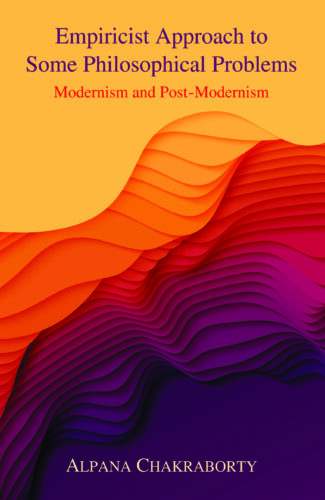
The book carefully examines and analyses the empirical tradition from different angles and concludes that modern and post-modern philosophy is actually a development from rationalism to empiricism, from the viewpoint of Francis Bacon, Thomas Hobbes, John Locke, George Berkeley, David Hume, John Stuart Mill, Edmund Husserl, Bertrand Russell and Ludwig Wittgenstein.
“This book is an attempt to give a historical account of the development of the empirical thoughts. It discusses issues related to the sources and the methods of knowing and highlights the views of the prominent empirical philosophers such as Thomas Hobbes and Francis Bacon up to Wittgenstein and the logical positivists. It takes up the issues related to the universals and inquires “Is there anything that is universal?” and if so, “Is universe knowable?”. The nominalist views of Thomas Hobbes and John Locke are taken up to establish the empiricist claim that “universals cannot exist without the particulars”. The important question “How do we determine the criteria of personal identity?” is taken up by John Locke and David Hume. Locke’s view that, “it is the same consciousness which constitutes personal identity”, but Hume rejects the idea of the permanent self. The criticisms for and against Locke and Hume are discussed herein in detail. The Berkeleian idealistic position that “only ideas of the mind are real” and the phenomenalistic position of Kant that “sense perception exists even when the object is not present in front of the perceivers eye” have both supportive and counter arguments which are discussed in detail. A critical analysis of Kantian theory of knowledge with the help of the two dogmas of empiricism has also been discussed.”
This is an annotated English translation of Vijñānabhikṣu’s commentaries on the first five Brahmasūtra (BS) of Bādarāyaṇa called the Vijñānāmṛtabhāṣya (VijBh). This is a pioneering work as no translation of the VijBh has been done so far. Bhikṣu is perhaps the only known Vedānta scholar who has argued for Brahman along with his prakṛti-śakti being the cause of the world. He calls his Advaita philosophy as Avibhāga-Advaita and sets himself against Śaṅkara’s Advaita which argues for Brahman alone being the material and efficient cause of the world. Bhikṣu is also an unique Advaita scholar as he interprets Vedānta using Sāṁkhya/Yoga principles. One of the reasons for choosing to comment on only the first five sūtras was because the VijBh is a huge work and also because Bhikṣu’s Avibhāga-Advaita can easily be understood from his commentaries on these first five sūtras of the BS. Even though the real reason for Bhikṣu’s commentary on the fifth sūtra (BS I.1.5) should be clear to anyone familiar with Vedānta’s objection to prakṛti being the cause of the world, it needed to be seen as to how Bhikṣu, as a committed Sāṁkhya-Yoga-Vedāntācārya, defends prakṛti’s role in being the cause. Just as writing commentaries on the first four sūtras of Śaṅkara’s BSBh done by some eminent scholars present the main features of Śaṅkara’s Advaita, the commentaries on the first five sūtras of the BS by Bhikṣu could adequately present Bhikṣu’s Avibhāga-Advaita Vedānta.
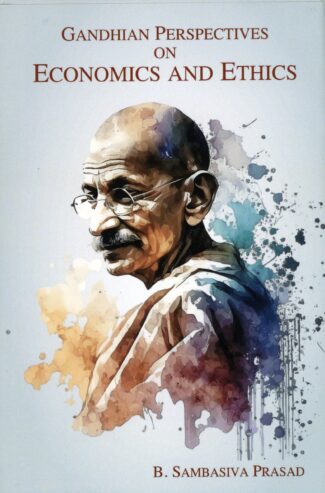
The book explores the ethical foundations of Gandhian economic order and discusses their relevance to the modern times. It also compares Gandhian economic ideals with those of classical thinkers and the modern scholars. The economic ideals and practices of Gandhi are centred round two fundamental principles – truth and non-violence. Gandhian thought, economics and ethics go together.
The book explores the ethical foundations of Gandhian economic order and discusses their relevance to the modern times. It also aims at comparing Gandhian economic ideals with those of classical thinkers like Adam Smith, John Ruskin and Karl Marx, and the modern scholars like Kumarappa, Schumacher, Amartya Sen and John Rawls. The Indian and Western influences, along with British imperialism, have shaped Gandhian economic philosophy. The economic ideals and practices of Gandhi are centred round two fundamental principles – truth and non-violence. Gandhian thought, economics and ethics go together. There is no distinction between them. The relation between economics and ethics works both ways. Gandhian economics is service economy. It is based upon selfless service and altruism. It transforms economics from positive science to normative science. Gandhian economics is not pure economics. It is holistic in nature. To Gandhi, economic questions cannot be isolated. They are interrelated with social, political and religious matters. Gandhian economics is man centred, not money centred. The notions of swaraj, svadeshi, bread labour, aparigraha, trusteeship, sarvodaya, constructive programme, decentralized economy, critique of industrial civilization and economy of permanence are discussed, under the backdrop of Gandhian economics. Finally, an estimate of Gandhian economic order is presented. Economic transformation is possible when there is a change from economic man to Gandhian man; if not, Gandhi’s dream of economic order will remain as a pipedream.
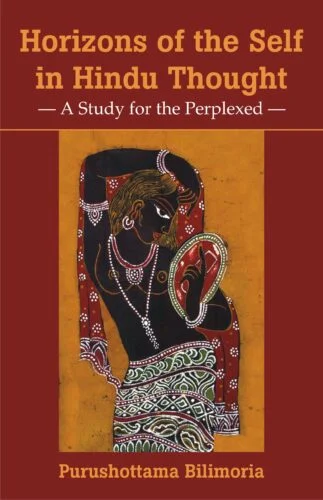
This volume discusses the different conceptions of the self and considers responses to many a question associated with the idea of the self, and on the destiny of the self in the context of karma, dharma, death and rebirth. It also deliberates on how a Hindu would realize the fullest to total potential and purpose of the self.
There is a variety of competing ideas about the nature of self in the Hindu tradition. Efforts to bring them together under a unitary conception were underway for many centuries. Much of the eighteenth- and nineteenth-century Oriental scholarship and the latter-day popularist movements made considerable effort to obscure the complexity and diversity of the idea of the self and its horizon in the broad spectrum of Hindu beliefs.
This modest study discusses the different conceptions of the self, and answers questions such as what is the self? and where does the self come from? How does the personal self retain its identity over time and space? In answering these questions it draws from the Vedic texts, Upanishads and the Vedanta system, especially Advaita (non-dualism). It also looks at the Samkhya system and its radically different conception of the self, which varies considerably from that of Upanishadic formulation. Buddhist and latter-day criticisms of the Hindu positions on the self via the neo-self theory are discussed.
The book also addresses questions such as what happens to the self, what does it do? where does it go? and where ought it go? discussing fate or destiny of the self in the context of karma, dharma, death and rebirth. Issues such as ends or goals towards which a person has to strive, realizing the fullest potential and purpose of the self, are well deliberated upon. Shankaras concept of the self and critique of the non-self are also examined.
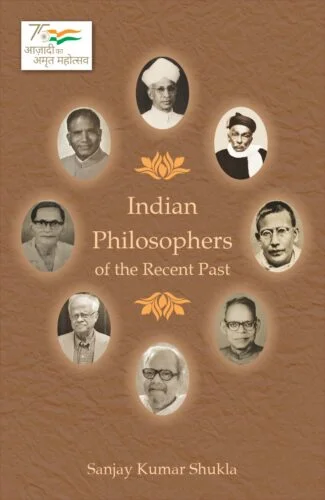
The present work, reflects and deliberates over recent Indian scholarship in philosophy. It makes an attempt to analyse the philosophies of outstanding philosophers such as K.C. Bhattacharyya, S. Radhakrishnan, R.D. Ranade, A.C. Mukerji, T.R.V. Murti, N.K. Devraja, J.L. Mehta, J.N. Mohanty, Daya Krishna and S.L. Pandey.
The present work, Indian Philosophers of the Recent Past, reflects and deliberates over recent Indian scholarship in philosophy. It is to get the present and future generations of philosopher-scholars acquainted with the rich Indian philosophical heritage. This is going to deepen our insights into the nature of philosophical consciousness and into the act of philosophizing.
It makes an attempt to analyse the philosophies of outstanding philosophers such as K.C. Bhattacharyya, S. Radhakrishnan, R.D. Ranade, A.C. Mukerji, T.R.V. Murti, N.K. Devraja, J.L. Mehta, J.N. Mohanty, Daya Krishna and S.L. Pandey. The post-Independent Indian philosophy is said to have unique tendencies and trends; some of them can be easily identified as existentialist and phenomenological, idealistic, realistic, humanistic, linguistic and analytico-philosophical comparative philosophy and Indian defence of metaphysics.
The volume is unique in its conceptual clarity, lucid expression, systematic presentation and critical exposition of the subject matter. It is undoubtedly a valuable contribution for the seekers of Indian philosophical system which should evoke keen interest among scholars and students of philosophy.
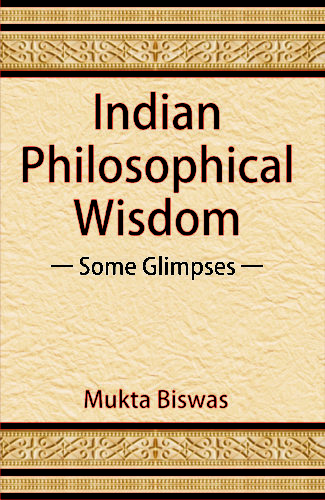
The title of the book Indian Philosophical Wisdom: Some Glimpses itself signifies its importance. Indeed, philosophy is involved in every sphere of human life — literature, creative art, culture, etc. The author in her zeal to unravel the precious accumulated wisdom of Indian philosophy delved in its treasure with different approaches — historical, analytical, comparative, etc. An attempt has been made in this book to expound Indian philosophical systems and to analyse critically their logical implications.
The title of the book Indian Philosophical Wisdom: Some Glimpses itself signifies its importance. Indeed, philosophy is involved in every sphere of human life — literature, creative art, culture, etc. The author in her zeal to unravel the precious accumulated wisdom of Indian philosophy delved in its treasure with different approaches — historical, analytical, comparative, etc. An attempt has been made in this book to expound Indian philosophical systems and to analyse critically their logical implications.
This work consists of twenty-seven articles both unpublished and published in journals and from different academic forums aimed towards making a documentation of discussions on various systems of Indian philosophy, Upaniṣadic and Yoga philosophy in particular. This could be a ready reckoner on the subject for young and enterprising students and scholars who possess innate inquisitiveness to unearth the sagacity enshrined in Indian philosophy.
In the context of current knowledge situation, when every discipline has something to contribute to interdisciplinarity, it seems quite apposite and opportune that philosophy should reinforce and reassert its traditionally cherished role of integrating human knowledge. The Book at hand is an attempt to that end. It is set to take the readers on an enthralling journey across disciplinary boundaries and inspire them to reach a comprehensive conceptual framework for human knowledge at large.
The book delves into the idea and the philosophy of interdisciplinarity, and then unravels the genealogy, dynamics, and myriad configurations of the highly complex phenomenon. It goes on to assess impact, advantages and critical issues involved in interdisciplinarity, while outlining an Indian view of it. The book, thus, explores the conceptual connections, fundamental issues and intrinsic implications of a myriad variety of interdisciplinary study and research, within and beyond academia. The book also attempts to develop necessary theoretical perspectives and a broader conceptual framework in this connection. Ultimately, it seeks to reach, as far as possible, a systematic conceptual account of varied and variegated interdisciplinary studies and researches by integrating them philosophically.
The present work is thus, intended for a wider audience, and not only for the practitioners of philosophy as an academic discipline. It is a must read across the intellectual spectrum, regardless of one’s disciplinary affinities and affiliations. It is wide-ranging in its concerns, far-reaching in implications, and highly resourceful and relevant for generalists as well as specialists, scholars and scientists, researchers and curriculum developers, educational administrators and policy-makers.
| There are no products |